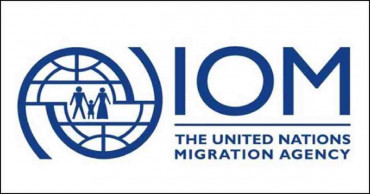worldwide response
Coronavirus: IOM ramps up worldwide response
The International Organization for Migration (IOM) says it has expanded the scope of its Global Strategic Preparedness and Response Plan (SPRP) to include far-reaching interventions that aim to mitigate the health and socioeconomic impacts of coronavirus pandemic.
A revised appeal was launched in Geneva, seeking $499 million to support vital preparedness, response and recovery activities in more than 140 countries, reports UN News.
The new plan broadens IOM’s approach to encompass COVID-19 mitigation efforts in humanitarian settings, and numerous other contexts where people on the move are likely to be gravely affected by the pandemic.
“IOM is calling for greater commitment from international donors that will allow us to better alleviate the dire effects that COVID-19 is having on some of the world’s most vulnerable communities,” OM Director General António Vitorino said Wednesday.
According to the World Health Organization (WHO), as of Wednesday, more than 1.9 million coronavirus cases and over 123,000 deaths have been reported worldwide.
After the WHO declared the crisis a pandemic on 11 March, it caused a sharp increase in movement restrictions. IOM has been working with governments and partners to ensure that migrants, returnees and forcibly displaced persons, are included in local, national and regional preparedness, response and recovery efforts.
IOM said migrants will remain among the most vulnerable to the loss of economic opportunities, eviction and homelessness, as well as stigmatisation and exclusion from essential services.
This will have a particularly drastic effect in countries where migrant workers contribute to poverty reduction.
Millions of displaced and migrant populations living in camps and overcrowded settings, many of whom are caught in conflict, are highly vulnerable due to limited access to services and knowledge on how to protect themselves and their loved ones.
“When migrants and displaced communities are excluded from national response plans and services, particularly health care, everyone is at greater risk,” said Vitorino. “We also need to anticipate and prepare for the potentially dire economic consequences for migrants, host and source countries.”
5 years ago

